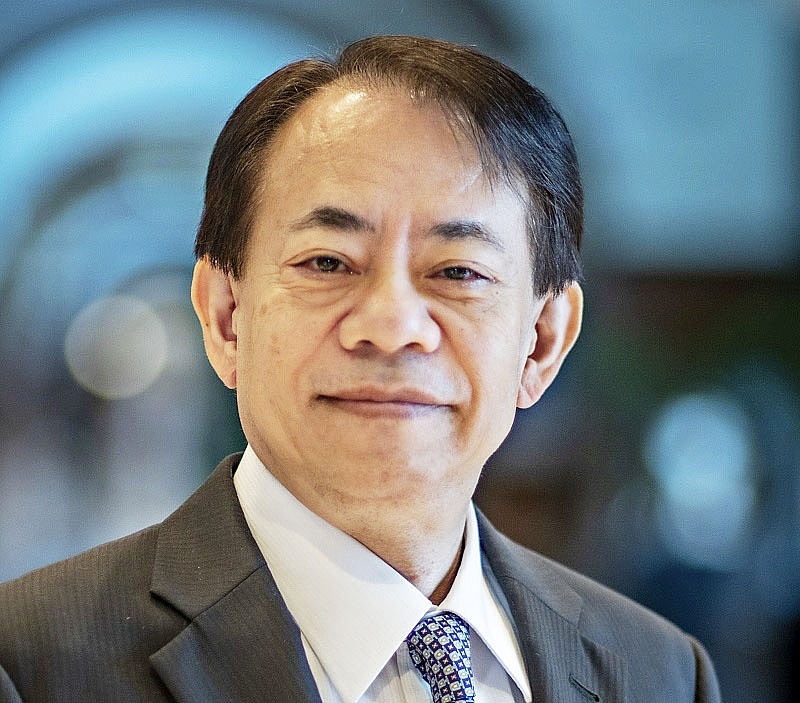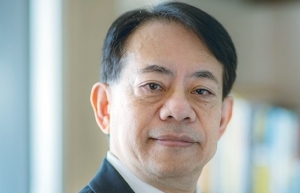Unlocking every dollar for a world in crisis
Recent climate-related disasters are a tragic foretaste of the world that awaits if we don’t act now to prevent these immense and overlapping threats, or poly-crises, from defining our future.
 |
| Masatsugu Asakawa, President of the Asian Development Bank |
Multilateral development banks (MDBs) like the Asian Development Bank (ADB), of which I am president, must do more and act faster to overcome these crises and help people — while there is still time. Business as usual isn’t an option, especially in Asia and the Pacific where nearly 70 million people have fallen back into extreme poverty since the pandemic, and which accounts for more than half of the world’s greenhouse-gas emissions.
We need bold action to deliver the estimated $3 trillion needed annually by 2030, according to the G20, to tackle global challenges and revive progress on the Sustainable Development Goals (SDGs).
The G20 believes MDBs can help deliver this finance by wringing every last dollar from their balance sheets. I agree, and at the ADB that process is well underway. In September, we announced capital management reforms that include optimising our prudential level of capitalisation.
These reforms unlock $100 billion in new commitments capacity over the next 10 years. They expand the bank’s annual new commitments capacity to more than $36 billion—an increase of approximately $10 billion, or about 40 per cent.
This will make up to $360 billion available over the next decade to expand our climate investments, spur momentum on the SDGs, and increase our support for economies still suffering from pandemic impacts. Importantly, the reforms are designed to ensure the ADB’s AAA credit rating is safeguarded.
This is part of a series of innovations the ADB has made to expand its lending capacity. In May, the ADB announced the Innovative Finance Facility for Climate in Asia and the Pacific, which allows donors to guarantee parts of the existing sovereign loan portfolio on the ADB’s balance sheet, allowing the ADB to leverage and generate $5 in climate finance for every $1 of guarantees. The ADB has also entered sovereign exposure exchange agreements with other MDBs to reduce portfolio concentration risks.
And it won’t be our last step. I see this as another advance on a continuous path of reform that all MDBs must take to respond effectively to rapidly evolving challenges like global warming.
To meet these challenges head on, MDBs need to take urgent actions across three fronts.
Firstly, it is vital that MDBs expand their capacity to mobilise private investment for climate and sustainable development programmes. MDBs are uniquely placed to catalyse the move from billions of dollars in development finance to the trillions needed, by leveraging their balance sheets to generate private investment at all stages of the project cycle.
This includes promoting policy development upstream to create an enabling environment for private investment, creating bankable projects midstream through advisory support, and financing projects downstream to crowd in private capital.
Secondly, as many countries can’t afford to take on debt after spending to manage pandemic impacts, they need to raise more funds domestically. The G20 estimates that two-thirds of the required $3 trillion for global challenges can be raised through domestic revenue mobilisation and local finance.
Economies must mobilise more tax revenue, modernise tax authorities through digitalisation, and cooperate to ensure a fair and well-functioning international tax system. Environmental taxes are one way to increase domestic revenue and contribute to low carbon development, while a more efficient VAT, including on the digital economy, could be a key source of income for developing countries. Countries should also revisit policies on fossil fuel subsidies.
Finally, financial innovation must continue. The ADB is working to deepen the region’s domestic capital markets. Stepping up the use of blended finance will crowd in private investment. De-risking instruments such as credit enhancement products through guarantee schemes and insurance can unlock capital for climate action, as can instruments such as thematic and sustainable bonds.
We can further promote climate action by engaging with evolving carbon markets. The ADB’s Climate Action Catalyst Fund provides relevant mitigation projects with upfront carbon finance through the purchase of carbon credits under Article 6 of the Paris Agreement. This complements our ongoing work to help our members develop the policies and skills needed to participate in carbon trading.
Crises can escalate quickly. We must move even faster to reduce the pain they cause and help secure a bright future for our region and beyond.
 | Seizing bigger growth opportunities across ASEAN As ASEAN economies continue their path to safely reopening and getting back to business, they must also manage growing economic challenges and identify how best to seize new opportunities for a resilient, inclusive, and sustainable recovery. |
What the stars mean:
★ Poor ★ ★ Promising ★★★ Good ★★★★ Very good ★★★★★ Exceptional
Related Contents
Latest News
More News
- Citi economists project robust Vietnam economic growth in 2026 (February 14, 2026 | 18:00)
- Sustaining high growth must be balanced in stable manner (February 14, 2026 | 09:00)
- From 5G to 6G: how AI is shaping Vietnam’s path to digital leadership (February 13, 2026 | 10:59)
- Cooperation must align with Vietnam’s long-term ambitions (February 13, 2026 | 09:00)
- Need-to-know aspects ahead of AI law (February 13, 2026 | 08:00)
- Legalities to early operations for Vietnam’s IFC (February 11, 2026 | 12:17)
- Foreign-language trademarks gain traction in Vietnam (February 06, 2026 | 09:26)
- Offshore structuring and the Singapore holding route (February 02, 2026 | 10:39)
- Vietnam enters new development era: Russian scholar (January 25, 2026 | 10:08)
- 14th National Party Congress marks new era, expands Vietnam’s global role: Australian scholar (January 25, 2026 | 09:54)

 Tag:
Tag:



















 Mobile Version
Mobile Version